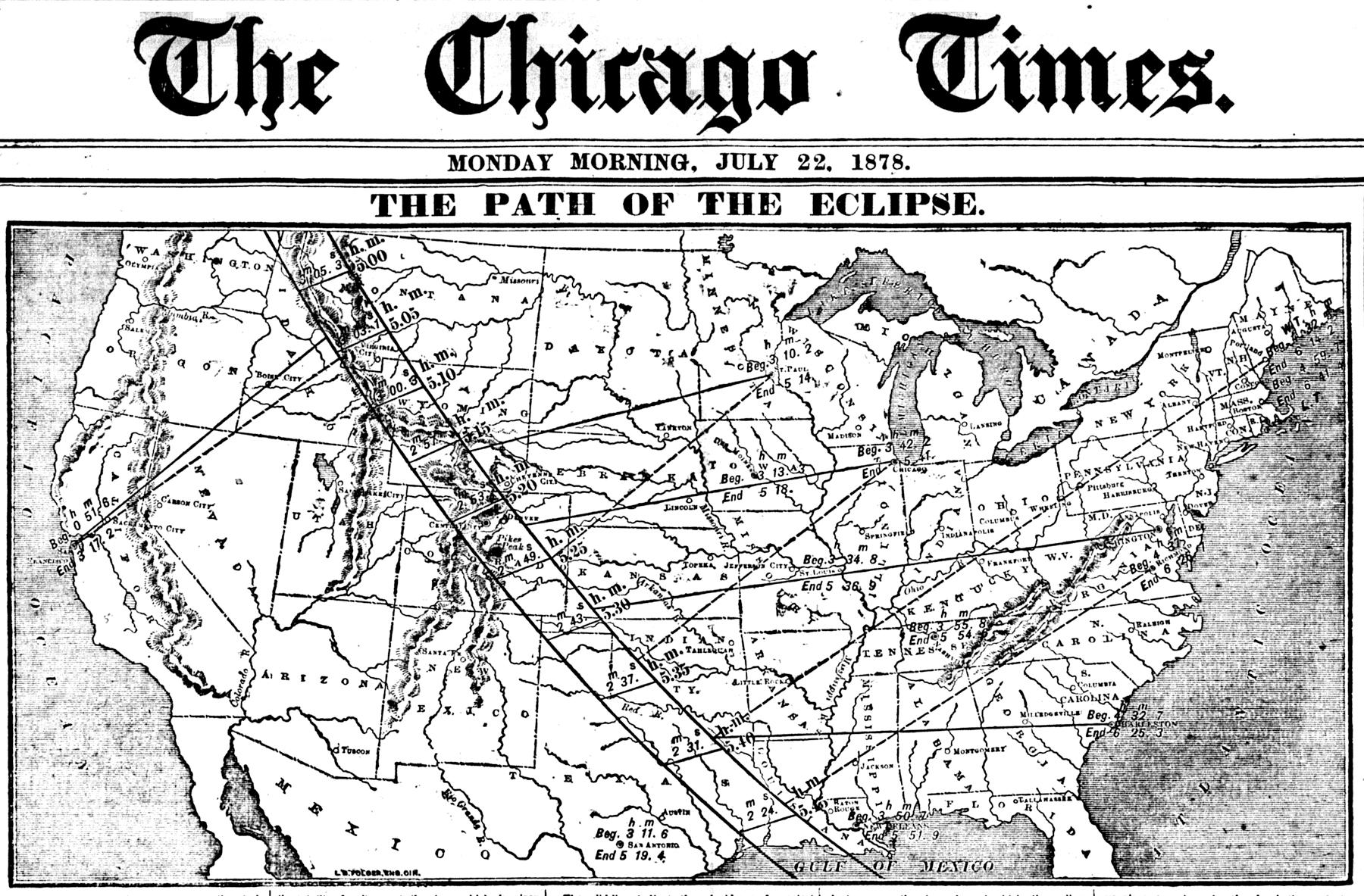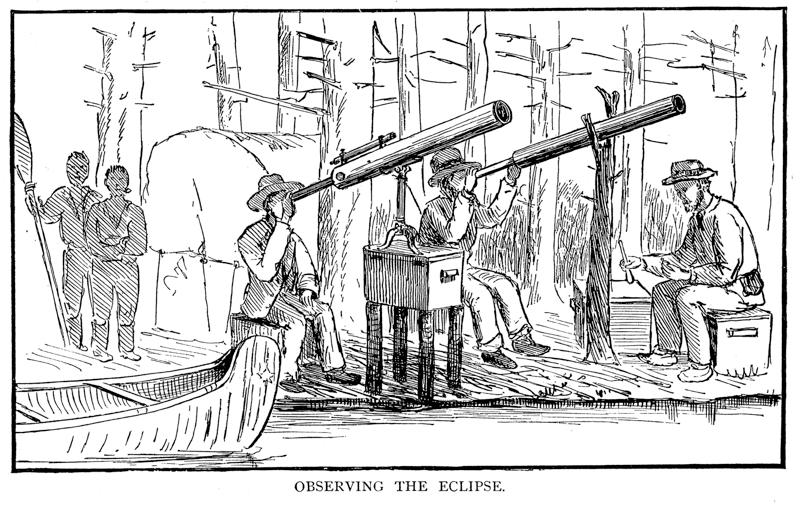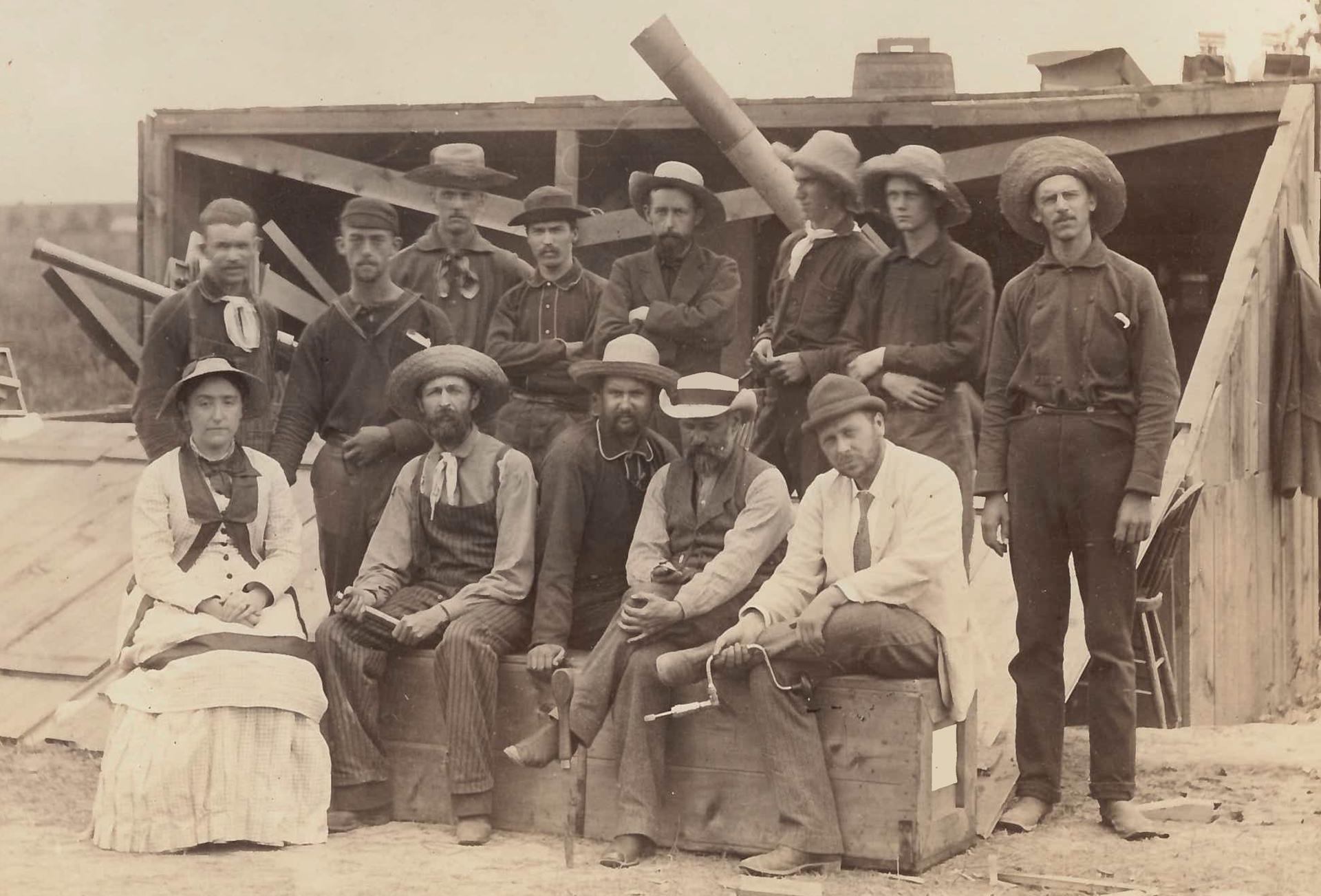This is how they celebrated? The Princeton College Eclipse Party, 1878
Science journalist David Baron tells the story of the 1878 total eclipse of the sun, visible over the American Wild West. It drew astronomers, scientists and a famous young inventor to witness the event.
"Thomas Edison, age 31, right after he invented the phonograph and immediately before he invented the incandescent lamp, went to Wyoming to see a total eclipse," says Baron.
And so did thousands of others.
Baron's new book, "American Eclipse," makes the case that, like the landing of Apollo 11 on the moon, the eclipse of July 29, 1878, dominated newspaper headlines and inspired people in the United States to look at science differently.

"The path of the eclipse crossed the American Wild West at a time when our country was really not respected in science," he says. "American scientists wanted to show what we could do. So, here was a total eclipse in our backyard. We were gonna show Europe that we could do astronomy as well as they could."
Baron, a former science editor for The World, says he chose to write about the 1878 eclipse because it is a great, and seldom-told, story from America's history of science.

"It was an early event that helped America coalesce around science. We decided — this democratic nation — we decided science is important. It's an important value to us. It's something our government should fund. And it was not the only [such event], by any means, but it was an important early event that turned America into the global leader in science."
Read the preface and prologue of "American Eclipse" here:
